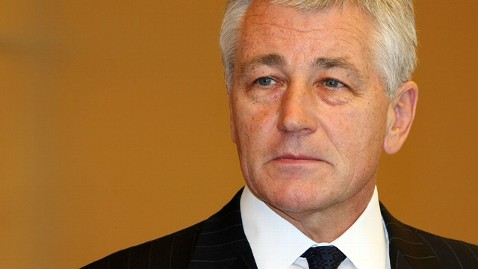As police confronted the movie theater carnage and a massive booby trap left behind by accused Aurora gunman James Holmes, the suspect loopily played with hand puppets, tried to stick a metal staple in an electrical socket and clamly flipped a styrofoam cup, according to court testimony today.
Holmes, 25, displayed the bizarre behavior once he was in custody and taken to Aurora police headquarters after the shooting that left 12 people dead and dozens injured, the lead investigator in the case testified today.
While being cross examined by Colorado public defender Daniel King, Police Detective Craig Appel was asked about the observations of two Aurora officers assigned to watch over Holmes in an interrogation room.
Appel said that to preserve possible gunshot residue, police had placed paper bags over Holmes' hands. One officer, King said, noted in a report that Holmes began moving his hands "in a talking puppet motion."
Click here for full coverage of the Aurora movie theater shooting.
King asked if Appel was also aware that the officer "observed Holmes take a staple out of the table and tried to stick it in an electrical socket?" Appel confirmed Holmes' actions.
James Holmes: Suspect in Aurora Movie Theatre Shootings Back in Court Watch Video
Police Testify at Hearing for Accused Colorado Gunman Watch Video
Caught on Tape: Rare Animals Lead Secret Lives After Dark Watch Video
The officers also noted that they watched as Holmes began playing with an empty styrofoam cup, trying to "flip it" on the table.
While Holmes was carrying out his childish antics, police were puzzling over a complex booby trap Holmes had left behind in his apartment, according to testimony.
A gasoline-soaked carpet, loud music and a remote control car were part of Holmes' plan to trick someone into triggering a blast that would destroy his apartment and lure police to the explosion while he shot up a movie theater in Aurora, Colo., according to court testimony.
FBI agent Garrett Gumbinner told the court that he interviewed Holmes on July 20, hours after he killed 12 and wounded 58 during the midnight showing of "The Dark Knight Rises."
"He said he rigged the apartment to explode to get law enforcement to send resources to his apartment instead of the theater," Gumbinner said.
His plan failed to prompt someone into triggering the bombs.
Gumbinner said Holmes had created two traps that would have set off the blast.
The apartment was rigged with a tripwire at the front door connected to a mixture of chemicals that would create heat, sparks and flame. Holmes had soaked the carpet with a gasoline mixture that was designed to be ignited by the tripwire, Gumbinner said.
"It would have caused fire and sparks," the agent said, and "would have made the entire apartment explode or catch fire."
Holmes had set his computer to play 25 minutes of silence followed by loud music that he hoped would cause a disturbance loud enough that someone would call police, who would then respond and set off the explosion by entering the apartment.
Gumbinner said Holmes also told him he rigged a fuse between three glass jars that would explode. He filled the jars with a deadly homemade chemical mixture that would burn so hot it could not be extinguished with water.










